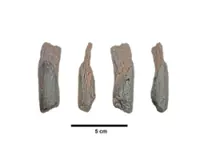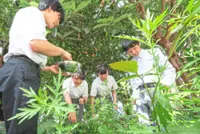Basil, a sun-loving herb, flourishes best with approximately 6-8 hours of direct sunlight daily. In the intense tropical sun of Malaysia, however, providing afternoon shade can help prevent overheating and leaf scorch. For indoor growth, moderate light from a window three feet away might be insufficient. It is better to place the pot in an outdoor area, such as a patio, balcony or garden bed that receives ample sunlight.
For soil, opt for a mix specifically designed for herbs or vegetables rather than conventional potting soil. This should be a loose, well-draining and nutrient-rich medium. Incorporating compost can enhance its quality. Ensure that the pot has drainage holes, and water the basil only when the top inch of soil is dry, as basil does not tolerate soggy soil and wet leaves.





